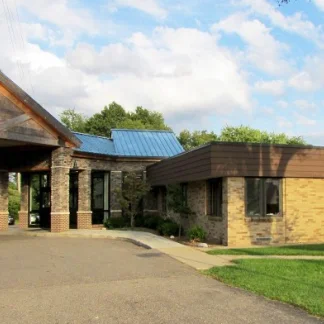Victory Clinical Services
Victory Clinical Services is a private rehab located in Kalamazoo, Michigan. Vic...
Gilmore Community Healing Center has served over 50,000 people struggling with mental health problems and substance abuse issues for almost two decades in the Southwest Michigan area. Helping individuals, children, men and women, and families, the Gilmore Community Healing Center offers a range of alcohol and drug addiction services with its inpatient and recovery housing programs.
Gilmore Community Healing Center believes that high quality and equitable care should be given to all people to help them heal from addiction and mental and behavioral disorders. That’s why this rehab provides person centered substance abuse services like the ones mentioned below:
The Gilmore Community Healing Center offers a residential medically assisted treatment (MAT) detox program for those seeking substance abuse recovery. Those 18 and older with alcohol, opiate, or other drug dependencies can receive treatment in a 24 hour medical monitoring environment with nursing care provided to aid with withdrawal during detoxification. Most individuals participate in this inpatient program for 10 to 18 days.
Women with children and single men and women can seek a safe haven and supporting and healing environment by applying for recovery housing offered by the Gilmore Community Healing Center. The recovery housing helps substance abuse users create a stable and self-sufficient lifestyle while focusing on drug or alcohol addiction recovery.
To help in the prevention of drug and alcohol addiction and to ensure clients don’t relapse, the Gilmore Community Healing Center offers a friend and family substance abuse prevention program. This program provides weekly meetings where research based information is shared through handouts, video materials, and educational presentations by certified and experienced professionals.
Contact us for more information: (269) 382-9820

Connect with Gilmore Community Healing Centers by calling their admissions team directly.
(269) 382-9820 Website Get DirectionsThe Commission on Accreditation of Rehabilitation Facilities (CARF) is a non-profit organization that specifically accredits rehab organizations. Founded in 1966, CARF's, mission is to help service providers like rehab facilities maintain high standards of care.
CARF Accreditation: Yes
Whether a marriage or other committed relationship, an intimate partnership is one of the most important aspects of a person's life. Drug and alcohol addiction affects both members of a couple in deep and meaningful ways, as does rehab and recovery. Couples therapy and other couples-focused treatment programs are significant parts of exploring triggers of addiction, as well as learning how to build healthy patterns to support ongoing sobriety.
Research clearly demonstrates that recovery is far more successful and sustainable when loved ones like family members participate in rehab and substance abuse treatment. Genetic factors may be at play when it comes to drug and alcohol addiction, as well as mental health issues. Family dynamics often play a critical role in addiction triggers, and if properly educated, family members can be a strong source of support when it comes to rehabilitation.
Group therapy is any therapeutic work that happens in a group (not one-on-one). There are a number of different group therapy modalities, including support groups, experiential therapy, psycho-education, and more. Group therapy involves treatment as well as processing interaction between group members.
In individual therapy, a patient meets one-on-one with a trained psychologist or counselor. Therapy is a pivotal part of effective substance abuse treatment, as it often covers root causes of addiction, including challenges faced by the patient in their social, family, and work/school life.
Research clearly demonstrates that recovery is far more successful and sustainable when loved ones like family members participate in rehab and substance abuse treatment. Genetic factors may be at play when it comes to drug and alcohol addiction, as well as mental health issues. Family dynamics often play a critical role in addiction triggers, and if properly educated, family members can be a strong source of support when it comes to rehabilitation.
Group therapy is any therapeutic work that happens in a group (not one-on-one). There are a number of different group therapy modalities, including support groups, experiential therapy, psycho-education, and more. Group therapy involves treatment as well as processing interaction between group members.
In individual therapy, a patient meets one-on-one with a trained psychologist or counselor. Therapy is a pivotal part of effective substance abuse treatment, as it often covers root causes of addiction, including challenges faced by the patient in their social, family, and work/school life.
Group therapy is any therapeutic work that happens in a group (not one-on-one). There are a number of different group therapy modalities, including support groups, experiential therapy, psycho-education, and more. Group therapy involves treatment as well as processing interaction between group members.
In individual therapy, a patient meets one-on-one with a trained psychologist or counselor. Therapy is a pivotal part of effective substance abuse treatment, as it often covers root causes of addiction, including challenges faced by the patient in their social, family, and work/school life.
In individual therapy, a patient meets one-on-one with a trained psychologist or counselor. Therapy is a pivotal part of effective substance abuse treatment, as it often covers root causes of addiction, including challenges faced by the patient in their social, family, and work/school life.
Victory Clinical Services is a private rehab located in Kalamazoo, Michigan. Vic...
Western Michigan University - Behavioral Health is an accredited outpatient trea...
Alano Club is a non-profit rehab located in Kalamazoo, Michigan. Alano Club spec...
EAP Consultants is a private rehab located in Kalamazoo, Michigan. EAP Consultan...